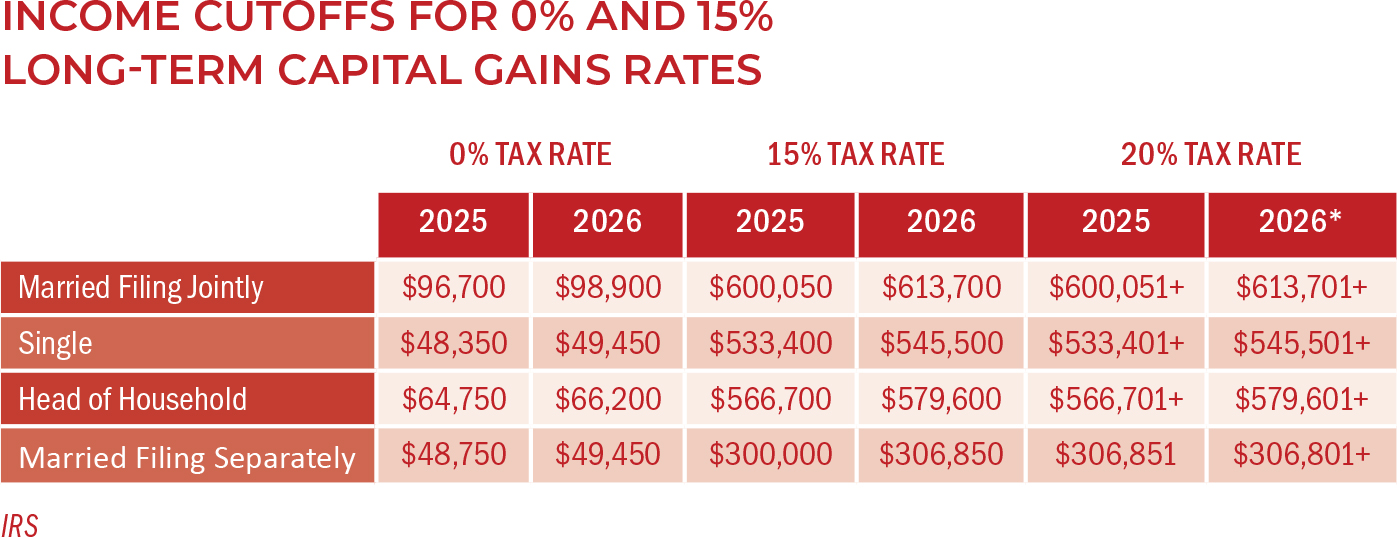SUBSCRIBE
Enter your Name and Email address to get
the tax guide delivered to your inbox.
Please include name of person that directed you to my online tax guide so I can thank them personally.


Anh Le, CPA, CGMA, EA, MBA
12400 Olive Blvd, Suite 320
Creve Coeur, MO 63141
Phone: 314-624-0350
Fax: 314-624-0351
Email: anh@anhlecpa.com
Website: www.lecpafirm.com

You report capital gains for tax purposes when you sell a capital asset, such as securities or real estate, and realize a profit. Gains on assets held for less than a year are taxed at your ordinary income tax rate. For long-term investments, those held for longer than one year, you pay capital gains tax at 0%, 15%, or 20%, depending on the sum of your other taxable income (after deductions) plus your qualified dividends and long-term capital gains.

If your investments have a net capital loss, you can deduct up to $3,000 of the loss against your income annually if filing jointly ($1,500 married filing separately). If your losses exceed the annual limit, you may carry losses forward to future years, deducting up to $3,000 per year against your income until your capital losses are exhausted.
But keep the wash sale rules in mind. These rules prevent you from taking a loss on a security if you buy a substantially identical security within 30 days before or after the sale. You can avoid triggering the wash sale rules while maintaining the same portfolio allocations by selling the security and waiting at least 31 days before repurchasing it or selling the security and buying shares in a mutual fund that holds similar securities.
Qualified dividends are eligible for more favorable capital gains tax rates, while unqualified dividends are taxed as ordinary income. Generally, dividends from real estate investment trusts (REITs) are unqualified, as are those from credit unions and mutual savings banks.
Enter your Name and Email address to get
the tax guide delivered to your inbox.
Please include name of person that directed you to my online tax guide so I can thank them personally.
Enter your Name, Email Address and a short message. We'll respond to you as soon as possible.
Anh Le, CPA and LTM Marketing Solutions, LLC are unrelated companies. This publication was prepared for the publication’s provider by LTM Marketing Solutions, LLC, an unrelated third party. Articles are not written or produced by the named representative.
The information and opinions contained in this web site are obtained from sources believed to be reliable, but their accuracy cannot be guaranteed. The publishers assume no responsibility for errors and omissions or for any damages resulting from the use of the published information. This web site is published with the understanding that it does not render legal, accounting, financial, or other professional advice. Whole or partial reproduction of this web site is forbidden without the written permission of the publisher.